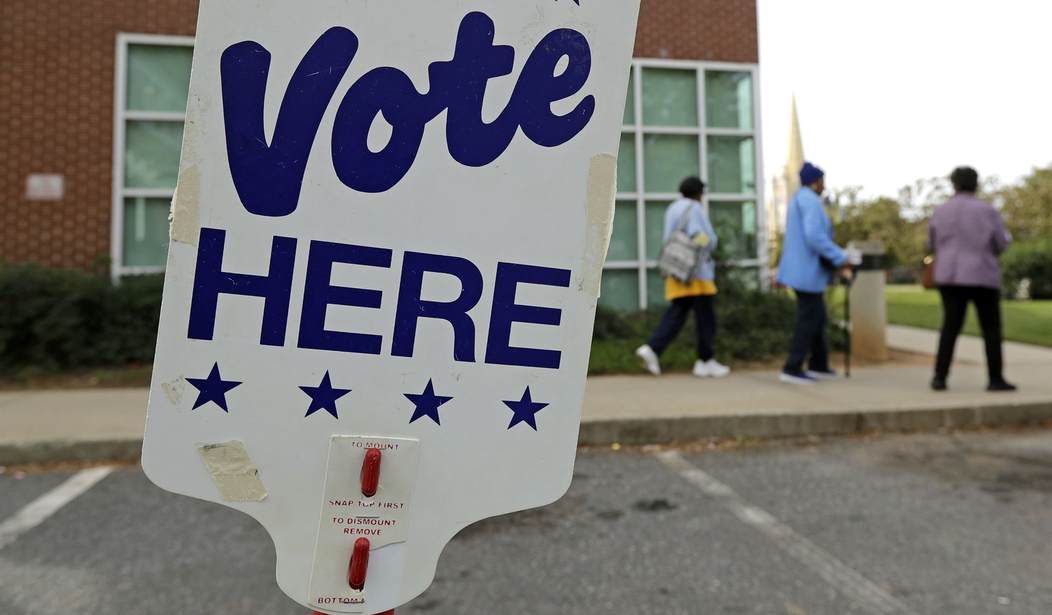A new report compiled by several leftist organizations—and obtained by The New York Times—in the wake of Democrats' underwhelming showing in 2020 congressional races shows Republicans were on the right track in down-ballot races while suggesting Democrats have a lot to learn to stay competitive in the 2022 midterms.
Democrats, experts and pollsters said, were sure to expand control over the U.S. House of Representatives. Come election night, Republicans flipped more than one dozen seats red while Democrats only managed to claim three wins for their side.
At more than 70 pages long, the postmortem report put together by Third Way, The Collective, and Latino Victory claims to "offer an honest and data-driven look at both what worked well for Democrats running for the U.S. House of Representatives and the U.S. Senate and where the challenges our candidates experienced call for meaningful solutions before voters head back to the ballot box."
Unsurprisingly, Democrat efforts to focus on identity politics and place people into buckets—rather than seeing Americans as individuals—backfired. "Our assumptions about Dem support among voters of color – and the lack of differentiation in our messaging and outreach with demographic groups – cost us support in key races," the report notes.
The resulting tribal treatment saw an unexpected "drop-off in support among Latino and Hispanic voters" that "were the lynchpin in Democratic losses in races in FL, TX, and NM." A similar "drop-off in AAPI support fueled losses in key races in CA, especially among Vietnamese and Filipino voters.
"Campaign messaging to these groups typically did not account for differing perceptions among gender, age groups, educational attainment, geography, or country of origin – and there was a dearth of message research on Black voters in particular," reads the report.
Recommended
Taking these groups for granted, Democrats "treated voters of color as a monolith – especially Latino voters" and targeted them with get out the vote messages, rather than persuasive messaging. That is, Democrats just assumed they needed to get minorities to the polls and they'd win, rather than needing to make a case that their platform was worthy of support.
As Leah reported, Republicans are taking note of the trends lamented by their opposition and looking to make the case for conservative leadership to the communities being ignored by Democrats.
The postmortem also noted that Republicans were successful in branding Democrats as "radicals" ahead of the 2020 election: "In the districts we looked at, those in which 'law and order' or 'socialism' was a continued drumbeat also saw a higher share of Latino/AAPI/Black voters who supported the GOP."
Democrats' all-consuming obsession with President Trump also cost them votes as their messaging focused heavily on attacking the 45th President and little on why Democrat governance was worthy of support. "Democrats focused on arguing that Trump was bad, not why a Democratic majority would help voters," and "some campaign teams we spoke with felt that the Party didn't have a message beyond 'Donald Trump sucks.'"
Democrats' messaging around the Wuhan coronavirus wasn't much better. A "major Democratic funder" quoted in the report said, "we became the party of shutting down the economy, the party of wearing masks, the party of taking kids out of school – not the party of solutions and science."
Lastly, the postmortem points to polling in 2020 as a problem that "was widely viewed as a catastrophic misfire from the top of the ticket down." Again, leftists' view of different groups as monolithic came back to haunt them as polling—especially of Latino voters—greatly inflated their electoral prospects.
As if it's new information, the report states Latinos "don't vote as a single bloc and should no longer be targeted under this lens" because "how Latinos vote in Florida can be very different from how Latinos in the Rio Grande Valley or on the West Coast vote."
Now that the Democrats are supposedly catching on to the idea that the color of a person's skin nor their heritage is determinant of their vote, time will tell whether they reject radical intersectionality and begin campaigning for individuals rather than races or ethnicities ahead of the 2022 midterms.

























Join the conversation as a VIP Member